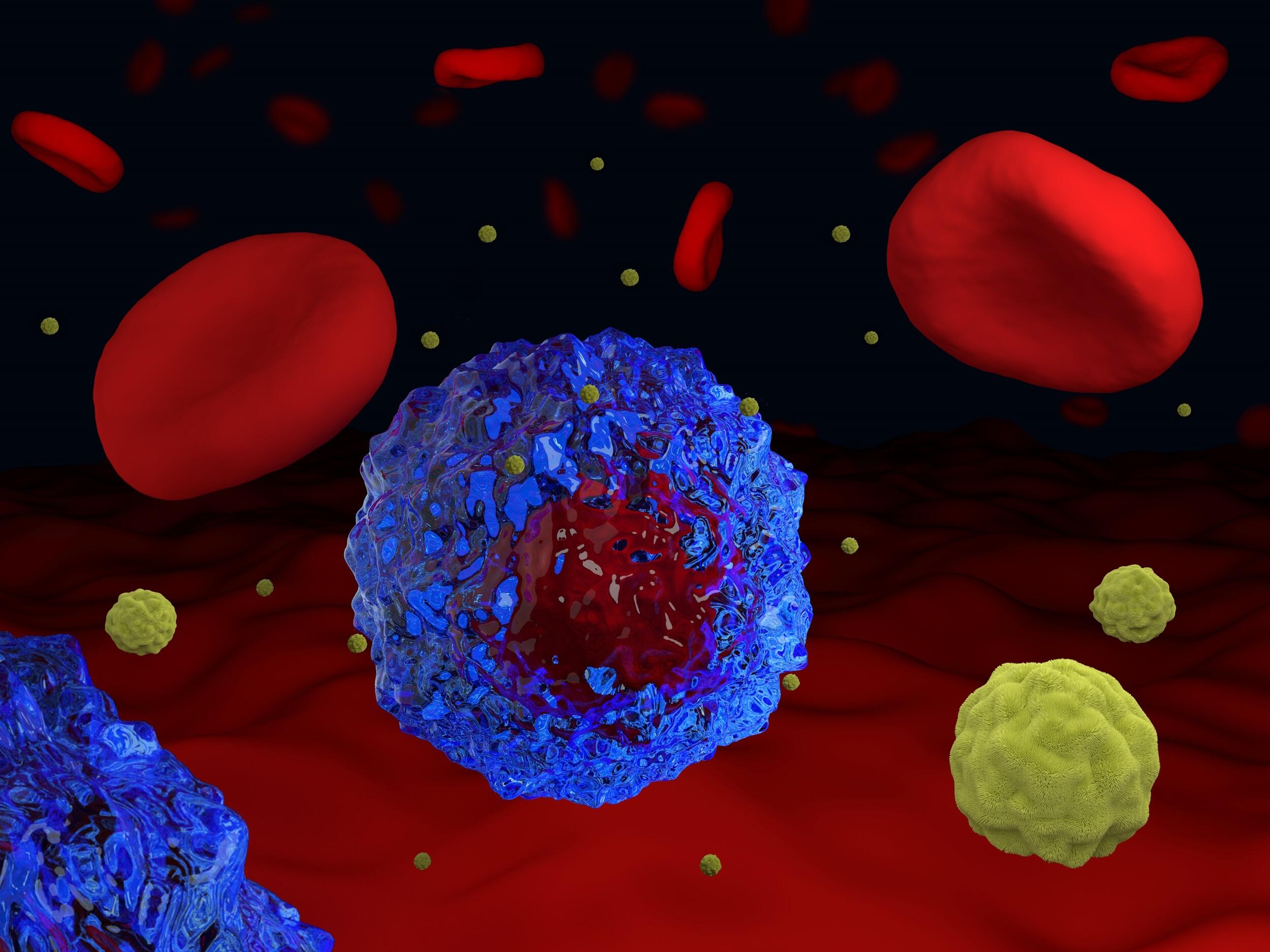
June 10, 2020
VCU physics professor receives NSF grant to develop new process for early cancer detection
A new type of sensor for cancer markers could mean improved chances of survival for patients.
Share this story
The National Science Foundation has awarded a grant to a Virginia Commonwealth University physics professor to develop a new approach for detecting small protein fragments called peptides that can be an early warning sign of cancer.
The three-year, nearly $400,000 award will fund a project, “Metallic Nanocluster Structure Fluctuations as an Early Detector of Cancer Biomarkers,” led by Joseph Reiner, Ph.D., an associate professor in the Department of Physics in the College of Humanities and Sciences.
Reiner and his research collaborators are aiming to develop a new type of sensor for cancer markers, specifically to detect peptides that are known to appear when cancers develop. By detecting the presence of these peptides, doctors could detect cancer in patients earlier, raising their chances of survival.
“The idea is to use small metallic nanoparticles that we can monitor one at a time inside of a nanopore sensor,” Reiner said. “When the nanoparticle is exposed to one of these peptides, it will undergo changes that are unique for each type of peptide. We hope to study these changes to identify the peptides and thus the presence of cancer.”
The researchers will spray peptides onto nanometer-sized metallic particles, allowing the researchers to detect changes in the size and shape of the particles, thereby making it possible to infer the identity of the various peptides.
“The advantage of being able to apply this approach would be that various cancer-marking peptides could be identified in a rapid and low-cost manner, and this would allow tests to be developed for early cancer screening,” according to the project’s abstract.
The project is in early stages, with the peptide detection occurring only in a lab setting. However, Reiner hopes to eventually perform peptide detection in various bodily fluids with long-term goals of applying the technique to extracellular peptides, which could enable bacterial detection.
Along with Reiner, the study will involve Greg Caputo, Ph.D., a professor in the Department of Chemistry and Biochemistry and the Department of Molecular and Cellular Biosciences at Rowan University, and Massimo Bertino, Ph.D., a professor in the Department of Physics at VCU. Caputo specializes in peptide synthesis, and Bertino specializes in nanocluster synthesis.
Subscribe to VCU News
Subscribe to VCU News at newsletter.vcu.edu and receive a selection of stories, videos, photos, news clips and event listings in your inbox.









